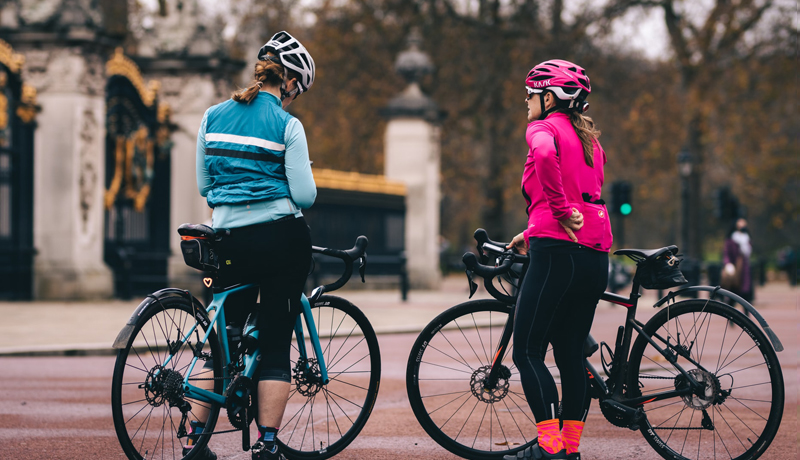 Photo by Jordan Brierley on Unsplash
Photo by Jordan Brierley on UnsplashFor many of us, riding a bike feels more dangerous than ever these days. The roads are busier, louder, and more foreboding. Drivers are increasingly distracted by their phones, GPS, and the "infotainment" console screens in their cars. At the same time, road rage and speeding are on the rise. If you've noticed your anxiety levels creeping up in recent years, you are not alone, and your worries are not unfounded. Here in the U.S., 2018 was the deadliest year for cyclists since 1990, according to Outside Magazine. What makes this so outrageous is that motor vehicle occupant deaths are actually decreasing, likely due to better air bags and other crash and injury prevention technology, which is designed primarily for the benefit of car occupants, not cyclists or pedestrians. Riding isn't just more dangerous here in the U.S., either. Countries across the globe are seeing a rise in cyclist injuries and deaths; Great Britain had a 40 percent increase in cyclist fatalities in 2020, according to The Guardian.
One Too Many Close Calls
So what are your options if you want to keep riding outdoors? Like most commuters, racers, and bike enthusiasts, you've probably already exhausted the well-known safety tips such as wearing bright clothing, avoiding peak rush hour rides when you can, and outfitting your bike with flashing lights. There's only so much you can do to prevent a crash. But should you go a step further, and take measures to protect yourself in the event that you do get hit?
Bike cameras have grown in popularity in recent years—not to prevent a collision, but to record the truth when a collision occurs. After all, drivers are known to bend the truth in the best of cases, and outright lie at the worst. Police often get things wrong when conducting official accident reports, witnesses have fuzzy memories, and insurance adjusters will do everything in their power to decrease the value of your claim if there is any doubt regarding fault. Knowing this, a camera seems like a no-brainer, but before you go out and buy one, you should consider the pros and cons of committing to riding with a bike camera.
Pros of Using a Front and Rear Camera Setup
- A camera makes some cyclists feel safer, knowing that if something happens to them there will likely be evidence proving them innocent and the driver negligent;
- A camera can be used to catch hit and run drivers. Hit and runs are incredibly common in bike vs. car collisions, as the driver is almost always capable of getting away due to minimal vehicle damage; and
- Many cameras have built-in bike lights.
Cons of Using a Front and Rear Bike Camera Setup
- A front and rear bike camera setup that is good enough to make out a license plate is fairly expensive, easily costing around $500;
- In order to be functional for catching a driver, the cameras need to be positioned correctly, the lenses need to be free of dirt and water droplets, and they need to be charged. Simply remembering to charge your bike cameras after every ride can turn into a major hassle, let alone re-positioning them mid-ride when they inevitably vibrate out of place; and
- For some cyclists, the simple process of mounting, turning on, and positioning a bike camera before every ride can ruin the joy they were hoping to gain from the ride before it even starts. For those who have been hit by a car before (or had one too many close calls), using a bike camera—and knowing that its sole purpose is to catch footage of a crash—can trigger PTSD, or cause enough anxiety about traffic that they are forced to turn around before making it a mile down the road.
What Does Colorado Bike Law Recommend When it Comes to Using a Bike Camera?
Bike cameras don't prevent crashes, they only record what happens (hopefully) when a crash does occur. While a camera may provide a sense of security, it does nothing to prevent serious injuries or death. If what you are seeking is a sense of security, and you don't foresee having anxiety about using your cameras before each ride, there is nothing holding you back from purchasing a camera system. Having video footage of a hit and run driver can be invaluable in a civil, and criminal, case. Having footage of what happened leading up to a non hit-and-run crash will also most likely benefit you, though not necessarily. If you have more questions about whether or not to begin using a bike camera, or you were recently injured in a bike crash, do not hesitate to reach out to Colorado Bike Law today.
